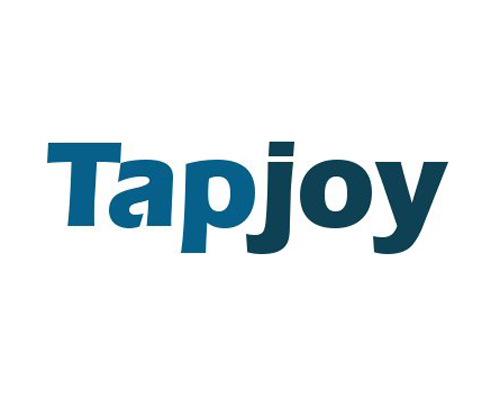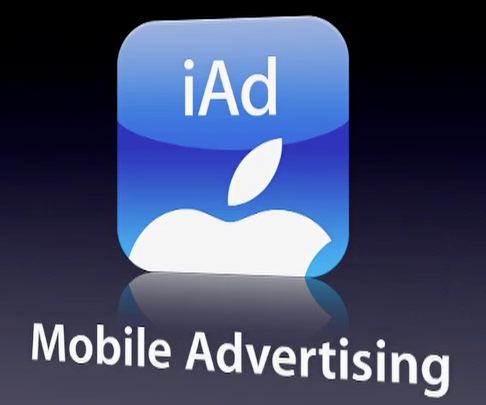Pocket Gamer分析评述苹果封杀刺激下载事宜
苹果公司有着多种头衔:世界最佳消费技术公司、世界最具价值技术公司、最令人惊奇的战后崛起企业、世界最富有的公司……
论及苹果的现实扭曲领域或其个人崇拜式的控制趋势,诋毁者也有他们的言辞,但还有群体似乎与前者的观点存在相似性。就像Marlon Brandon和Al Pacino(游戏邦注:二人在电影《教父》中饰演黑帮首领。)一样,Steve Jobs需要开发商的绝对忠诚。只有少数公司的运营如此依赖CEO,这也是为何Jobs的健康问题如此引人关注的原因。
苹果的决策
与苹果沉默的言辞相比,其管理App Store的方式显得格外突出。
4月下旬,新闻爆料苹果开始驳回某些使用下载刺激的游戏。这种方式通过Offerwall发挥作用,典型方式是玩家通过下载某些Offerwall上的免费或付费应用来获得免费游戏中可用的游戏内货币。发行商付费让他们的游戏和应用获得用户关注,随着下载量的增加,这些促销手段足以让游戏(游戏邦注:通常是免费游戏。)飙升至App Store中的前25或前10行列。同样,游戏发行商和Offerwall也获得广告收益。
App Store规则变更
该领域市场领头羊是Tapjoy,从数量庞大的玩家到为数不多的独立游戏开发者,许多iOS游戏发布者和开发者都曾使用过该公司的服务。很显然,他们使用这项服务是因为它能够解决App Store中最大的问题。
应用商店中可用的总应用数超过35万个,让自己开发的游戏被人注意到很难,但也极为重要。就获得关注度和排名并随后产生利润而言,刺激下载提供最具性价比的方式。正如Tapjoy在帮助游戏获取榜单位置后,Adknowledge、W3i和Flurry等其他公司也窜入该领域,提供类似的刺激下载服务,于是某些游戏便含有带各种应用的Offerwall。
现在想来可称作“戏弄App Store”的此类行为引起苹果的注意,因而公司开始封杀这些应用在所难免。苹果意图通过更改排名法则来调整App Store排行榜,遏制为App Store外的Tapjoy等公司产生大量利润的行为。
事态混乱
到目前为止,事情都在按部就班进行着,正如外界所述——App Store属于苹果,开发者只是在其中编写代码。但上述事件的情形并非如此简单。诚然,有些使用Tapjoy的游戏已被驳回,但有些仍然存在。使用其他刺激方式的游戏也被驳回,然而那些利用小工具的游戏却不受影响。
似乎没有人知道究竟在发生什么事,包括苹果自己,而正是这种困惑让开发者感到无所适从。当然,没有人会公开表达他们的不安和烦恼。这在商业上无异于自杀行为,让苹果有充分的理由通过特色和其他促销方式推广App Store上的游戏。也很少有公司会直接与苹果商谈此等情形,保持沉默便是现在的行业规则。
然而,公众对此依然有着自己的看法。某开发者(游戏邦注:此人非Tapjoy使用者。)说道:“这件事看起来就像苹果狠狠地打击了Tapjoy,数天后又把他们拎出来,休整一番后让他们继续做自己的事。”
苹果iAd动态
更令人关注的是,使用Tapjoy的游戏被驳回后,那些利用刺激方法的开发者和发行商接到了苹果iAd团队的电话。工作人员询问他们是否在这种情形下考虑将营销资金投给苹果。现在,我们来看看这种做法。
并非据此就可断定苹果反对这些广告方案的决定是早有预谋,目的在于推广自有的广告网络。首先,iOS上所有的第三方广告商都会给开发者打相同的电话,积极的销售人员才能发掘最良好的契机。
尽管iAd团队在纽约而不是库比蒂诺,但其与苹果总部间的联系让公众对此事态存在疑问。对苹果来说,制定规则是一回事,制定似乎并没有完全实行的规则与上述情况便大为不同。而且其他事项让苹果完全无法洗脱企图从规则变更中获利的嫌疑,尽管iAd看上去似乎是在利用这个突显的机会做推广。
苹果模棱两可做法的传统
回顾苹果往日的做法,这并非公司首次被指责做法混乱并带有双重标准。
在整场反Flash的战斗中,苹果最终允许开发者使用Flash工具的做法让Steve Jobs和Adobe首席执行官Shantanu Narayen间的矛盾归结为一场闹剧。然而在Safari浏览器上,苹果仍决定不支持Flash格式。包括流行的Unity引擎在内的其他工具也卷入到争论中,正是因为苹果缺乏对禁令所涉技术的澄清,才使得Unity及其开发团队遭受更大的损害。
Flurry及其他分析和广告公司所处的境地类似,苹果认为这些公司掌握了过多用户个人信息,因此以个人隐私问题为由限制可追踪和记录的数据。但讽刺的是,iPhone会自动追踪用户的位置,并把行为备份到桌面上,这令上述公司大感不满。
苹果也曾与大型发行商合作,以独立的方式在App Store中开展季节性销售。最为著名的例子是EA Mobile的圣诞节销售,大部分产品都在打折促销。正因此行为,才使得EA诸多游戏在这个关键节日中位居前25大付费应用排行。
手机系统未来的发展
单个反社会行为只是个人情况而已,一直发生的大量不良行为才更令人担忧。当然,不能过分戏剧化评述这件事。首先,对大部分意图盈利的发行商和开发者来说,苹果仍然是主要的游戏平台,近期内还不会发生改变。无论苹果做什么决定,App Store仍然是大多数公司主要关注的平台。
但是随着Android的崛起以及RIM和诺基亚与微软联手,将来事态或许会有所改变。苹果可以瞬间成为最大的平台,也可能在12个月内被许多公司所忽视。这种情形对参与手机应用领域的所有人都更好,开发者可不再只依靠由苹果全权控制的App Store。(本文为游戏邦/gamerboom.com编译,转载请注明来源:游戏邦)
Opinion: Is Apple the App Store’s honest gatekeeper or is it running a protection racket?
There are plenty of ways of describing Apple: the best consumer technology company in the world; the most valuable technology company in the world; the most surprising post-war corporate resurrection; the most cash-rich company in the world…
Detractors have their phrases too, talking about the Apple reality distortion field or its Stalinist control tendencies. But there is another organisation with which it seems to share some similarities. Like a cross between Marlon Brandon and Al Pacino, Steve Jobs demands the unswerving loyalty of his family. And few public companies are so dependent on their CEO; something Jobs’ ill health throws into grim focus.
It’s my party
Taking into account the vow of silence, this comparison has been further highlighted by the way Apple is managing the App Store.
Last week, news broke Apple had started rejecting some games using some download incentivisation programs. These work via Offerwalls, typically in free-to-play games whereby players can gain additional in-game currency or credits if they download certain free or paid apps that are made available on the Offerwall. Publishers pay to have their games and apps featured, of course, as the increase in downloads these promotions generate can be large enough to boost games into top 25 or 10 rankings on the App Store; typically on the free games chart. Similarly, the publishers of games including Offerwalls gain a slice of the advertising revenue too.
The house rules
The market leader in this space is (or was) Tapjoy, which is used by many iOS publishers and developers, ranging from the largest players to the smallest indies. They use the program as it solves the biggest problem of the App Store; discoverability.
With over 350,000 apps available, getting your game noticed is difficult and vital. Incentivised downloads provide the most cost effective results in terms of gaining releases visibility and chart position, which can then be monetised. Indeed, such has been Tapjoy’s success in gaining chart position that many other companies – Adknowledge, W3i, Flurry etc – jumped into the space, offering similar incentivised download schemes, with some games including Offerwalls from multiple vendors.
Such behaviour – now retrospectively referred to a ‘Gaming the App Store’ – was going to catch Apple’s attention so it was no surprise when Apple started to reject apps. As well as manipulating the App Store charts – something Apple also attempted to mediate by tweaking its ranking algorithm – this activity was generating large amounts of cash for companies such as Tapjoy external to the App Store.
Island of confusion
So far, no surprises. As the saying goes ‘It’s Apple’s App Store. We just code in it.’ But the situation in this case is much more complex. Sure, some games using Tapjoy have been rejected, but many others are still live. Games using some other incentivisation schemes have been rejected too. Others – generally the smaller outfits – haven’t been affected.
No one seems to know what’s going on, even it seems Apple, and it’s that confusion which is really spooking developers. Of course, no one will go on the record publicly to voice their disquiet; that would be commercial suicide given Apple’s power in terms of promoting games on the App Store with its featured spots and other promotion activity. Few companies will try to talk to Apple direct about the situation either; keep your head down is the order of the day.
Still, feelings are running high. “It’s like Apple beat up on Tapjoy with a rubber hose and then a couple of days later picked them up, dusted them down and told them to get on with it,” one developer (not even a Tapjoy client) said.
Bait and switch
More concerning is the way that the day after games using Tapjoy were rejected, developers and publishers using incentivisation schemes received calls from Apple’s iAd team asking them whether in light of the current situation they’d like to spend their marketing dollars with Apple. Now, let’s get this into perspective.
We’re certainly not suggesting Apple’s decision against these schemes was pre-meditated in terms of boosting its own ad network. For one thing, all third party ad networks on iOS were making exactly the same calls to developers; good sales people make the most of opportunity.
Equally, the iAd team operates out of New York, not Cupertino and, anyhow, communication between the two is known to be problematic. Yet, it’s one thing for Apple to make the rules, quite another for Apple to seem to make rules it doesn’t fully enforce, and something else entirely for Apple to be seen – however opportunistically – to be trying to profit from those rule changes.
Got a history
Still, taking a step back from the current confused situation – and believe us, the information is imperfect – it’s not the first time Apple has demonstrated a lack of clarity, or been accused of double standards.
There was the whole anti-Flash crusade, which boiled down to a playground spat between Steve Jobs and Adobe CEO Shantanu Narayen before Apple finally allowed developers to use Flash tools. Its decision not to support Flash within the Safari browser remains firmly in place however. Also caught up in that debate were other tools including the popular Unity engine; again a lack of communication by Apple over what technology was or was not involved in the ban was more damaging to Unity and its development community than early clarification either way would have been.
There was a similar situation with Flurry and other analytics and advertising companies, with Apple deciding that they had too much information about individual users, citing personal privacy issues as it limited what data could be tracked and recorded. The irony that iPhones have been automatically tracking their users’ every movement, and backing up that activity onto desktops, hasn’t been lost on those companies who were publicly berated by Jobs.
Finally, there’s been Apple’s collusion with large publishers as they – in their own way – have been Gaming the App Store with seasonal sales. The most notable example was EA Mobile’s Christmas sale which saw the vast majority of its iOS catalog heavily discounted. Backed by featured spots on the App Store, it led to EA titles taking the many of the top 25 paid chart positions over the key holiday season.
The road ahead
As any probation officer will tell you, a single example of anti-social behaviour can be justified in terms of individual circumstance. A pattern of consistent bad behaviour is more worrying. Of course, let’s not get overly dramatic. For one thing, Apple is the main game in town for most publishers and developers in terms of generating revenues. That’s not going to change any time soon. No matter what Apple does, it will be the primary platform for most companies.
But the rise of Android, and the aggressive future activity of RIM and Nokia-Microsoft means that won’t always be the case; Apple could easily be the largest single platform but a minority for many companies within 12 months. And that will be a much more healthy situation for everyone in the mobile content ecosystem. Absolute power corrupts and there are few things more absolute than Apple’s control of the App Store business. (Source: Pocket Gamer)











































